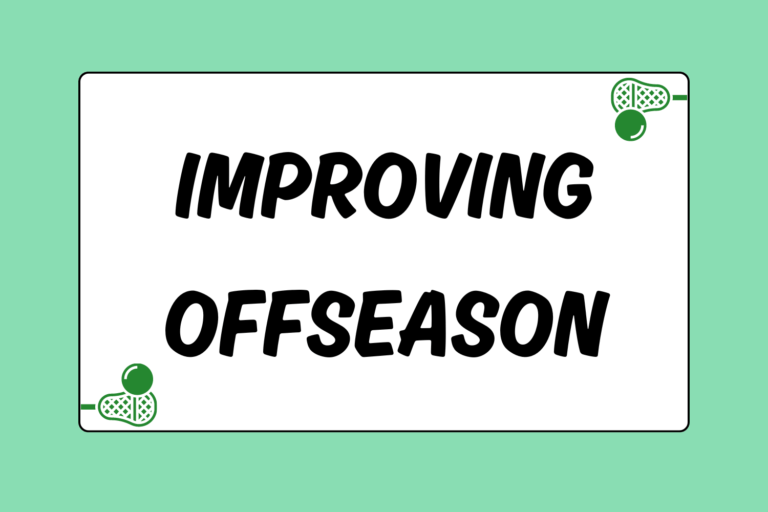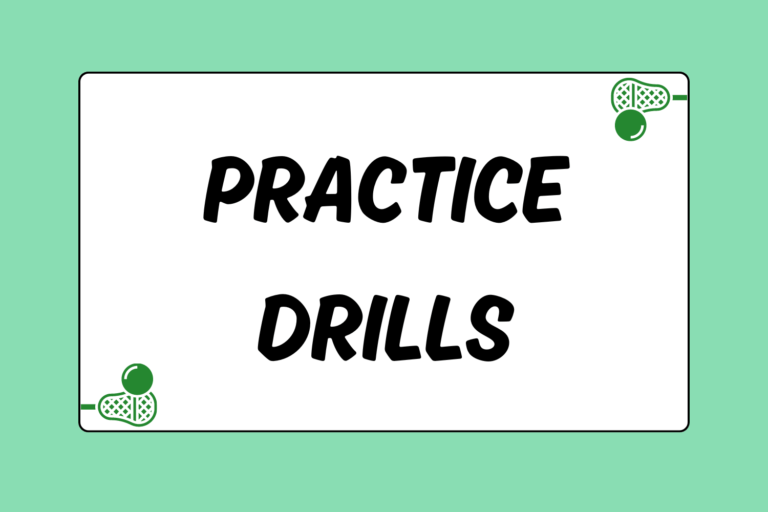Your playing days are over. They have become the glory days. Maybe that knee injury is just too much to overcome. Whatever the reason you aren’t playing competitively anymore, you need to keep scratching that lax itch. There is no better way to do that than through coaching. Obviously, depending on your level of experience, you may have to break in at a lower level. Generally, if you have collegiate playing experience, many high schools will put you right in the running to be their next varsity head coach. However, many coaches find that coaching youth teams can be much more rewarding than working with the older guys. Sometimes it can be a tough transition from playing to coaching. You must learn to articulate your thoughts and actions to players on your team and learn to be patient when people make mistakes that you have no control over.
Where to Get Your Start
If you’re feeling apprehensive about whether you will be successful in your first coaching job, look to start off at the juniors level (11 to 13 year olds), or maybe even with the really little kids (6 to 10). At these levels, there isn’t much, if any, pressure to win games, and the emphasis is really on basic skill building so players can be prepared for play at the high school level. You’ll find that the best teaching opportunities can come while working with these age groups. If you want to feel that you have made an impact in teaching the game and its core skills, it’s recommended that you coach at a younger level. There, your hard work will lead to very tangible results in the form of improved skills and athleticism … not to mention smiles from young children and their parents.
If winning and competitiveness are your main focuses, then it’s probably a good idea to coach at the high school level. On the varsity level, players’ core skills should be pretty much in place, so much of your job will be focused around keeping them mentally prepared for games and the season as a whole. Teaching players how to have the necessary intensity and determination during practices and games is paramount with this age group.
Dealing With Different Types of Players
“Some guys need a pat on the butt, and some guys need a kick in the butt. Figure out who needs what, and you’ll be good to go.”
Mickey-Miles Felton
Arizona Club Lacrosse Coach
Learning how to respond to and act towards different types of players can be one of the more difficult adjustments you will have to undertake in becoming a coach. As a player, you probably weren’t the one who had to deal with attitude problems, selfishness, or uncomfortable situations with other players. Most teams have “that guy” who no one else on the team can stand, and a failure to deal with a player like that early on in the season can lead to disastrous results. Often times, that player is one of the more talented individuals on the team. As a coach, these situations will pop up early and often, and you should be prepared to deal with them in a positive and constructive manner.
The first step you should take in addressing a problematic player is to talk to him in private, away from the rest of the team. Explain to this player that his failure to earn the respect of his teammates and coaches through hard work and positive attitude can have a very negative effect on the team as a whole, both on and off the field. A team that is close off the field will almost always perform better on the field than one that doesn’t have positive off-field relationships.
Don’t expect the problem player to pull a 180 right away. Rather, look for small cues that he is making an effort and understands what you expect of him. Here are a few ways to tell if a problematic player is making progress:
- Encouraging teammates when things are or aren’t going well
- Demonstrating proper body language
- Reacting in a mature way to both wins and losses
- Positively interacting with opponents and officials
- Showing effort and overall enthusiasm during practice
Should the problems with this player persist, take the next step in correcting it by calling out the player in front of teammates. Kids are very conscious of how they are viewed by their peers, and are constantly seeking approval. Be calm and don’t lose your temper when doing this, as a failure to control your emotions can rub off the wrong way on your team.
A good time for such a talk would be after a particularly bad practice or game, in which the poor performance can be attributed to a lack of chemistry, effort or poor overall team play. Suggest to the player that if an attitude adjustment is not made immediately, he will no longer find himself a contributor to the team, regardless of how talented he may be. Don’t do this with the intention or tone of humiliating the player. Rather, use it as a learning experience for the player and team by showing how negative attitude leads to unwanted results on the field. Always be prepared to cite particular instances in which the player demonstrated poor form and remind everyone of the negative results.
Setting Your Rules and Expectations
While youth players certainly need a lot of direction and concrete rules, it’s best not to have too many. Instead, have a few basic rules that transcend all aspects of the game. Base your rules on respect and punctuality, and you will find that the rest pretty much takes care of itself. Picking emotionally stable and strong leaders as captains can go a very long way in asserting your leadership as a coach.
Here are a few other ways to help make your team run as smoothly as possible:
- At the beginning of a season, write up a player-parent contract that the player will read and sign with his parents. By doing this, everyone involved with the team understands the program’s expectations and cannot claim to not have known about a certain rule. The contract contains all rules as dictated by the coaching staff and/or athletic director, and also emphasizes academic importance.
- Insist that your players have respect for everyone and everything involved with the game – from coaches, to players, to officials, to fans. Honor the game. One of the great things about the lacrosse community is the way people band together and forge lifelong friendships and bonds.
- Demand punctuality in everything. Don’t expect players to just be at the field when practice starts, but to be suited up and ready to go. Don’t just walk from drill to drill at practice, run everywhere and in everything you do. Maximize your practice time and effort as a team. Reinforce the notion to your players that people who show max effort and intensity in practice will find themselves on the field come game day.
- Understand and accept the fact that players are going to fail from time to time. There isn’t anything you can do about this fact. Punishing players for one-time mistakes or errors can do irreparable damage to the confidence they have in themselves, as well as in you, the coach. Some players simply aren’t going to be able to do everything you want them to, no matter how hard they try. If you expend time and energy fretting over this, you’ll be neglecting other areas of performance on which you can have a positive effect.
- If a player isn’t able to perform at the high level you demand, try to find a different role where that player can excel. For example, a midfielder who lacks great stick skills and shooting ability, but has good intensity and quickness can find a home as a defensive specialist. Take the time to explain to this player that fitting into that role is how he will maximize his value to the team, as well as his time on the field. Be sure to complement players on taking on their role and excelling at it. This will make them more comfortable and confident in handling that role, as well as make them more enthusiastic about their value to the team.
Identifying Leaders
Picking captains is an important part of establishing a rapport with players. Be sure to not just pick the most physically talented guys. Instead, take the mentally strong leaders. Pick players to whom teammates respond positively, and ones who will command the respect of everyone else on the team. Physical talent does play a part – as players with minimal talent probably won’t be on the field as much – but try to balance having guys who are both good players and solid leaders.
Be careful about letting players vote for captains. Being fair to all the players and giving them a voice is important, but good captains will represent their teammates well when communicating with the coaching staff. At younger ages, players will tend to vote for their friends, or just the most talented players on the team, and these players often don’t end up being good choices as captains.
Preparing Players For The Next Level
Much of your work as a coach will revolve around preparing your players to play at the next level, regardless of where they currently play. For the youth-level players, you’re getting them ready for high school competition by building fundamental skills while letting athleticism develop naturally. With the high-schoolers, you should be focused on having them ready for the college game by imparting knowledge of advanced strategy and development of the skills that college coaches look for when recruiting a player. With high school players you also need put great emphasis on excelling in the classroom.
With the young players, focus your energy, first and foremost, on the development of sound stick skills. Obviously, every coach wants to win games, but at this level the emphasis has to be on stick skills in order for your team and your program to be successful in the long run. This can be frustrating at first, as many players develop at very different speeds. With a commitment to building this skill, though, you will find around half way through the season that everything you are doing in practice is much crisper and you won’t be wasting any more time on dropped passes and chasing stray balls.
Even in your finest efforts to be fair and encourage the young guys to just go out and have fun, you don’t want to get into a habit of accepting losing. Words that should describe a player are:
- Aggressive
- Enthusiastic
- Tenacious
Players can possess these traits and play for love of the game, while learning other traits that will allow them to be highly competitive and successful players at the next level.
For high school players, probably the most important aspect of preparing for the next level is for you to help them get noticed by college coaches. Since the skill set needed for college should already be in place at the varsity level, the emphasis is more on getting them attention from college coaches. College coaches aren’t just looking for the fastest, strongest, hardest shooters. That stuff has them licking their chops, no doubt, but they want someone who has excelled in the classroom, and at balancing many different activities over the course of their high school career. This is a great indicator of future success, since so much of college is about time management, especially when committing so much time to one activity like lacrosse.
The first step should be to encourage players to attend a high-level camp after their freshman or sophomore year in high school. It’s not really enough to go to just any camp if the player plans on playing at a high level in college. He needs to go to one with coaches that come from a team with the same caliber of play for which the player is looking. Players also need to do their homework before they attend one of these camps. They need to figure out what schools interest them, and then find out about the coach and some of the current players. Players can’t be shy about seeking out a coach and selling themselves. To do that, they have to know who the coach is and what style his team plays. After the player’s junior year, he should set up recruiting visits to colleges he wants to attend. This way, he can learn more about life on campus and life on that school’s lacrosse team.
Another thing players can do to sell themselves to college coaches is create a highlight tape. Coaches don’t just want to see all the goals you’ve scored, though. They want to see that a player is motivated, unselfish and coachable. Don’t be shy about offering your players letters of reference or recommendation. Also, you as a coach can reach out to college coaches to tout the virtues of your players at times when NCAA rules prohibit college coaches from contacting players directly.
Hitting Your Stride
One of the biggest keys to being a successful coach is to always remember that players are going to make mistakes, and there isn’t much you can do about it in the heat of the moment. Focus your efforts on having players mentally prepared to play the games, and for the difficult situations that will present themselves in those games. Demand that players take practice seriously and that they strive to improve their skills on the practice field, and the rest should take care of itself. Understand the mindsets of your players based on what age level you are coaching, and move forward from there.





